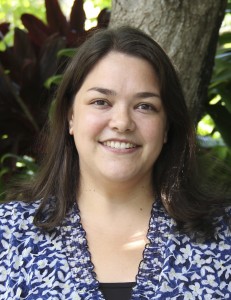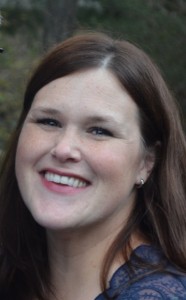Corrie Gustafson is an ordained ECC minister who currently serves as the pastor to women at Peninsula Bible Church in Palo Alto, California. She is the PSWC liaison to Advocates for Covenant Clergy Women (ACCW) and is a regional coordinator for Advocacy for Victims of Abuse (AVA). Corrie blogs regularly at http://pastorwithapurse.com.
 Even though 2,000 years have passed between Jesus’ death and my birth, I want to do anything and everything I can to enter into his story. Following the church calendar and observing Lent have become valuable spiritual practices for me. They help me grow closer to Jesus.
Even though 2,000 years have passed between Jesus’ death and my birth, I want to do anything and everything I can to enter into his story. Following the church calendar and observing Lent have become valuable spiritual practices for me. They help me grow closer to Jesus.
During Lent I fast more and pray more. I read the Gospels with the attentiveness of an actress taking up the script (and the role) of a lifetime. How I wish I were an eyewitness of Jesus Christ! Careful reading, a healthy imagination, and the Holy Spirit have become a portal into my savior’s world.
As I’ve joined Jesus’ story this Lenten season, I’ve found myself zeroing in on the women – where they are, what they are doing, and what emotions they display. As a woman, a pastor, and a writer, I’m often disappointed that we don’t have a gospel account penned by a female disciple. After all, “Many women were there, watching from a distance. They had followed Jesus from Galilee to care for his needs.” (Mt. 27:55)
Jesus had many more than 12 disciples, a fact which we too often forget. Remember that he sent out 72 disciples to proclaim the coming of the kingdom of God! I picture bands of disciples spreading out from Jesus like concentric circles. The women who followed Jesus and cared for his daily needs were certainly near the center circle. Whether or not they were formally commissioned among the 72, I imagine many women were overcome with the joy of the Lord. I picture them breaking away and hurrying back to their villages and families to share all that they had seen and learned at the rabbi’s feet. Continue Reading »



Do Women and Men Lead Differently?
Filed under: Book & Commentary
Jo Ann Deasy is an ordained Covenant pastor currently serving as the director of institutional initiatives and student research at the Association of Theological Schools in Pittsburgh, PA
Lehman’s work found that differences in leadership between male and female clergy were often minimal. Lehman did find that female clergy were slightly more empowering than male clergy. He found that female clergy tended to lead with their congregations rather than over them. He also found, though, that male clergy also often led in ways that were culturally considered more feminine, empowering, and coming alongside. Continue Reading »
Report This Post